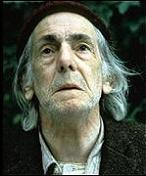|
|
||||||||||||||||||||||||
 |
Featured person
Recently added |
Ann Browne (1949 - 2000): |
||||||||||||||||||||||
Ann Browne was principally known as a campaigner for workers in and refugees from Latin America, particularly those in the mining and similar industries.
She came from Strabane, County Tyrone, where she attended Mount Carmel Grammar School, moving on to Queen's University, Belfast where she studied Spanish, developing a great enthusiasm for the Latin American world. She was also a strong supporter of the Northern Ireland civil rights movement, which was at that time - the late 1960s - a popular and powerful organisation. After further studies at London's Institute of Latin American Studies, where she was awarded an MA, in 1974 she became a member of the Joint Working Group for Refugees from Latin America (JWGRLA); she was also active in the Chile Solidarity Campaign.
In 1977 she went for the first time to Latin America, in her rôle as coordinator of the JWGRLA on a trip with a delegation from the National Union of Mineworkers to Chile and Bolivia. This experience awakened an interest in mineworkers and their working conditions. Four years later, she joined the Miners' International Federation (MIF), based in London and later Brussels; where she was education and organisation projects secretary, and when the MIF merged with the International Federation of Chemical, Energy, Mine and General Workers Union (ICEM), she became Projects Officer with particular responsibility for Latin America. Her main task in this rôle was to develop education programmes for trade unionists and miners' wives. Another one of her concerns was mineworkers' safety in their unsafe workplaces, in which context she coined a slogan, "the stronger the union, the safer the mine".
She was viewed in many quarters as a militant, though this could cut both ways: after one visit to Peru a newspaper there (presumably not left-leaning) described her as a "dangerous activist". She was certainly active; another of her interests was in the case of the mineworkers of Colombia, where for years she was keenly supportive of the trade union "Sintracarbón" ("Sindicato Nacional de Trabajadores de la Industria del Carbón" or National Syndicate of Coalworkers), based at the Correjón coalmining operation, the biggest in Colombia and one of the biggest in the world, in their campaign to secure better working conditions, including collective bargaining rights. This was dangerous territory: as late as 2004 Members of the European Parliament were still finding themselves condemning death threats and extortion attempts by members of paramilitary groups in Colombia against collective bargaining committee members of Sintracarbón, which had become one of the most effective trade unions in Latin America.
On her death, from bone cancer, tributes to her came from all over the world, mainly but by no means exclusively from trade union activists, refugees, their families, praising her courage, level-headedness, good humour and commitment.
| Born: | 18 October 1949 |
| Died: | 29 January 2000 |
| Richard Froggatt |
| Acknowledgements: Wesley McCann |
| Bibliography: The Guardian, 15.2.2000; ICEM website (News Release No 8/2000); SINTRACARBON website |


Home | Our Policies | Plaques | Browse | Search | Sponsors | Links | Help | Contact
Privacy & Disclaimer | Cookie Policy | Site Map | Website Design By K-Point
© 2024 Ulster History Circle









